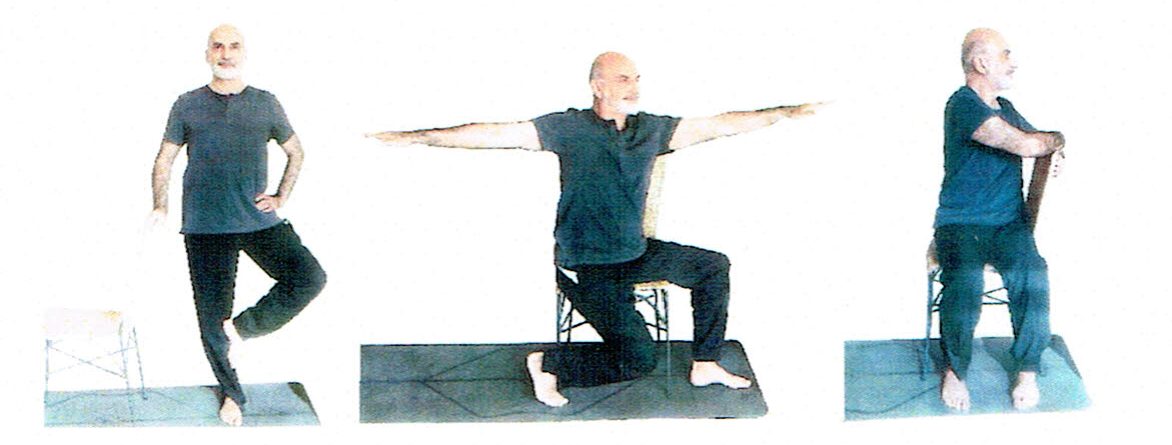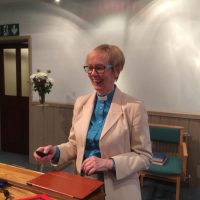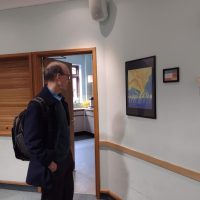Sermon given by Revd Dr Elizabeth Welch at St Andrew’s 3rd Aug, 2025
Theme: Living in God’s way, challenge and promise
Readings: Ecclesiastes 1.2, 12-14; 2.18-23; Psalm 49.1-12; Colossians 3.1-17; Luke 12.13-21
There are times when we can be tempted to think that faith means an easy ride, a simple end to all our problems. However, this is not what we see when we read scripture. There’s a strong thread which runs through the Bible – of the evil and wrongdoing that happens; and of the way in which we can each get led astray.
All this happened not just centuries ago when scripture was written. It points to the everyday challenges, in each generation, of the world around us and the way in which we need to face up to these when we look at our faith.
God calls us to live in God’s way. And what God promises is to support us when we face challenges.
The readings today contain an interesting range of contrasts, pointing to the different patterns of living that are possible.
In Ecclesiastes we heard the challenging words: ‘vanity of vanities says the Teacher, vanity of vanities! …all is vanity and a chasing after wind. What do mortals get from all the toil and strain with which they toil under the sun? for all their days are full of pain and their work is a vexation; even at night their minds do not rest.’
It feels like a rather despairing picture, so full of gloom and despondency, not actually in these verses seeing a lot of hope.
Yet I guess we can each recognise truth in it. Are there not times when we can feel that all is lost, we can’t make sense of what’s going on, there are so many troubles in the world around us?
The Psalm for today, 49, takes this a further step forward, in the words that we sang together.
The psalmist points to the challenges of the world at that time – people who flaunt their wealth or simply trust the power of gold above all else. The writer of the hymn points to an ‘age of shame or sham’ in which people were living, and reminds them that everyone will die, even the wise won’t last.
But the psalmist takes the next step forward in what is written. He writes we glimpse a better destiny:
the Lord will lift us free from death to walk with him eternally.
our hope, our life are in the Lord, the God we honour and confess.
The words take us beyond the sufferings and challenges that the world faces, to the God who offers so much more than all that can be seen in the world around.
When we move on to our NT readings for today, we see a further spelling out of the challenges of the world around, and what it is that God promises.
In Colossians, there’s a long list of warnings about some of the challenges: including anger, wrath, malice, slander and abusive language, and lying to one another.
It’s as if Paul, the writer, can look around and see all these things at work – one person getting angry with another; someone else talking about their colleague behind their back, people abusing each other.
There’s a whole collection of areas that we can still see today.
But then, this passage has another side to it. It comes with a reminder that there’s not just a challenging choice about turning away from bad things, there’s a positive choice, about turning to the good. ‘Clothe yourselves with compassion, kindness, humility, meekness and patience.’
Paul’s words to the Colossians are reminding them that they need to watch their own behaviour.
But his words aren’t just a self-help manual, which says to the good folks – your life would be better if you followed these directions.
Paul’s words are about living in an alternative way – the way that is Christ’s way, the way that Jesus makes possible.
Paul uses the imagery of clothing – that the people in Colossae have stripped off their old clothes – their old selves, and have put on the new self. In those days it would have been the practice for people baptised as adults, to be clothed in white clothes, as a visible sign of the new life which they were entering.
He finishes his list with talking about what Christ offers ‘above all else, love.’ Paul isn’t just being negative, saying that there are all these old ways we must give up. He’s saying that what makes it possible to give up the old ways, is that we’ve put on the new self, that is the gift of Christ to us. This new self makes a difference, to us as individuals, and to the Christian community.
Paul here is echoing his words in Galatians: ‘there is no longer Greek and Jew, circumcised and uncircumcised, barbarian, Scythian, slave and free; but Christ is all and in all.’
This is the great gift we have to celebrate.
It’s because Christ is in us that we lose the old identity of hierarchy and separation:
- those who are in and those who are out,
- those who are British and those who are foreigners who need to be sent back home,
- those who are wealthy who have got it right and can be rewarded as opposed to the poor who just have to put up with getting more poor;
- the focus only on the self, rather than on others.
The role of the church is to be a beacon of what God wants for the world – people coming together from different places and backgrounds, different ages, different ethnicities and genders, varied ways of thinking.
It was good to hear the Colossians reading today in Twi, a language which is the home language of some members of the congregation, but a language that the rest of us might not understand! It’s a reminder of the way in which when we come together as God’s people, we’re very diverse, but gathered together as one community.
The church is here to offer a model for the wider community – a place in which each one is valued for who he or she is – not because we’re naturally good at it, but because this is what Christ makes possible.
In Christ, diversity and difference are held together. What might seem to be boundaries are not places of exclusivity, but of creative encounter. As we encounter each other across our differences, so we are enlarged.
The parable in Luke’s gospel offers us another challenging example of the way a person tries to put himself first, put boundaries around all that he has, and not think about God or anyone else.
Luke tells the well-known parable of the rich farmer, who tries to store up possessions for himself. It’s interesting that the passage begins with what feels like a bit of an interruption. A man comes up to Jesus and asks him to adjudicate with his brother over the family inheritance. When Jesus responds to this man, it’s as if he can see into the man’s heart that what he really wants is more money, rather than being concerned for family justice. So he goes on to tell the parable of the rich farmer.
Here’s a man who thinks he can have everything. Without a thought in the world, and certainly not a thought for others, he stores up possessions. He dreams of building bigger barns in which to keep his crops. He thinks that all he needs to do is to eat, drink and be merry. Yet that very night, he dies, and it’s all for nothing.
One of the commentators on this passage makes the point that people can too easily be driven by fear in the direction of personal accumulation. Life seems frail and uncertain. The only way to be secure is to gather in possessions. Yet the more people gather in possessions, the more they feel they need.
And sometimes it’s our politicians that seem to travel in this direction e.g. Trump rewarding people who are hugely wealthy, rather than thinking of how to help the poor across the world; or in this country the debate about whether or not to tax the wealthy more or just leave it that the poor will have less and less.
In Colossians, greed is referred to as idolatry. i.e. Greed has taken the place of God.
But the reward of the rich man in the parable in Luke’s gospel is that he gets to lose all he has.
He should have been rich towards God, who is always rich towards his people, but not in the way that involves certain individuals on their own, getting more and more wealth!
There’s so much which drives us towards possessing more in today’s world: advertising campaigns, economic pressure and our internal needs. It takes a real courageous step to live an alternative – to sit loose to the thought of possessions
This is the step God enables us to take – when he sets us free of the need to be greedy, to accumulate, to have more of what this world offers.
The passages today take us in a different direction, challenging where we find our ultimate security. When our security lies in God, our desire for possessions becomes secondary: we can look at having enough for what we need, rather than accumulating much more than we need; we can look at being generous with what we have, because we have the sense that what we have is given to us by God, and that we are entrusted to use it well for God’s sake; we can look at sharing the bounty of this earth so that each one has enough, rather than some people having too much and others nothing.
We can’t just take this step on our own. We need the help of each other to live in this way – over against the many pressures of our society to be like the rich man.
This is part of the purpose of being in a congregation, that we can share with others and support each other in living alternative patterns.
That’s why God gathers us together in local churches. So that we can support each other as Christ’s people, so that we can learn from each other when we come from different backgrounds, so that we can strengthen each other to live in Christ’s way and so that together we can reach out in love to those in need around us.
And all this is in response to the generous love of God who gives us more than enough for our needs – and who enables us to live in open hearted ways towards one another.
When we come to share in Holy Communion, it can feel like we’re just sharing a tiny little bit of bread and wine. Yet, in this sharing, we’re bound together with Jesus eternally and for eternity.
In response to the challenges that the world offers, God’s promise is that God’s love will be shared with us. We’re then invited us to share this love with others, and to know that this to be more than enough for the fulfilment of our lives.






